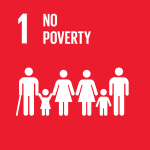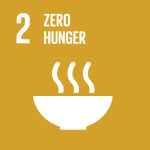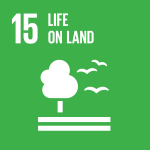
Guatemala’s economy is deeply rooted in agriculture, particularly through small-scale producers. Farmers face significant challenges from increased droughts, which can lead to up to 55 percent losses in basic grain production during dry spells.
In Sololá district, home to Lake Atitlán – one of Guatemala’s most visited destinations for its natural beauty and biodiversity – the local organization Asociación Natün is drawing on the rich agricultural traditions of Indigenous Mayan communities to revive sustainable farming and enhance resilience to drought. With support from the UNDP-Adaptation Fund Climate Innovation Accelerator (AFCIA), the organization has opened 14 escuelas de campo (field schools), to strengthen climate resilience, enhance food security and amplify women’s leadership in climate action.
“The unpredictability of the rains, the delayed rainy season and the increasing droughts are affecting my crops. It’s also worrying because prices are rising in local markets. With climate change, I don't expect things to improve quickly and I am uncertain about planting my crops.” – Sandra Virginia, a local farm gardener from Santa María village, Sololá district
Reviving traditional agroecological practices
The field schools employ a community-based learning model, organizing participants by region and sector. These groups are encouraged to self-organize, choosing names, leaders and establishing internal rules, fostering a sense of ownership and collective responsibility.
In 2024, Asociación Natün trained 250 women in practical skills such as seed bank management, community gardens and vertical gardening, all rooted in Mayan agroecological practices.

Vertical gardens at one of the field schools in Sololá, helping families grow food in small spaces with limited water. Photo: Asociación Natün
Vertical gardening: a sustainable solution
Vertical gardening is a key feature of the training, allowing families to grow nutrient-rich crops in small spaces with limited access to water. This method not only supports better nutrition but also provides a valuable source of income.
These gardens draw on the traditional Mayan practice of cooperative farming, where family kitchen gardens play a central role. The community-based approach emphasizes the shared use of resources, including water, which is critical during droughts.
“The training has greatly improved my family’s nutrition and has also provided additional income from the surplus produce. My family has grown closer and we’ve gained a deeper understanding of the importance of agriculture through our family garden. I love participating in the training sessions and applying the knowledge I’ve gained.” – Sandra Virginia

Sandra Virginia in her garden. Photo: Asociación Natün
In addition to gardening techniques, Asociación Natün has established seed banks to preserve and multiply locally adapted seeds. These banks play a vital role in maintaining the genetic diversity of resilient crops, enabling communities to cultivate and exchange seeds that are well-suited to their environment. This initiative draws on Indigenous knowledge, ensuring that future generations can continue to benefit from culturally relevant agricultural practices.
Women as community leaders
Women’s leadership is at the heart of Asociación Natün's work. In 2024, 30 women were trained as promotoras – local trainers in climate resilience and environmental stewardship. These women have become leaders in their communities, teaching climate-adaptive farming practices and encouraging families to adopt sustainable methods. The initiative also creates dedicated spaces for women to learn and connect. In these safe, women-only groups, participants can share experiences, challenges and successes free from societal pressures. As the promotoras take on leadership roles, their influence extends beyond agriculture. They become role models for gender equality and community engagement, inspiring others to follow their lead.

Farmers with their harvested crops. Photo: Asociación Natün
Strategic partnerships for greater impact
The success of the field schools has been bolstered by key partnerships with government agencies and NGOs. Asociación Natün has established collaboration agreements with four major organizations, including the Ministry of Agriculture, Livestock and Food of Guatemala. These partnerships provide crucial technical support, training and monitoring to ensure the continued success and scalability of the initiative.
“As the Ministry of Agriculture, we provide technical assistance to increase production through culturally appropriate methods. These approaches benefit family farming and improve the quality of organic agricultural products. It is crucial for society, and the communities have accepted these methods with great enthusiasm.” – Byron Estuardo, agronomist from the Ministry of Agriculture and Livestock
Other partnerships with organizations, such as the Private Institute for Research on Climate Change and the Association of Mayan Women Oxlajuj E’, are helping bridge the gap between policy and practice. Together, these entities are supporting communities to turn local knowledge into action and create lasting change that strengthens livelihoods and the social fabric.

Community coordination meeting with the Ministry of Agriculture and Livestock. Photo: Asociación Natün
A model for sustainability and growth
Asociación Natün is now looking to reach over 3,400 people across four communities, implementing climate-resilient farming models. The organization is also pioneering a reforestation campaign, aiming to plant 200,000 trees around Lake Atitlán to protect the watershed, improve soil quality and restore ecological balance. With the support of Asociación Natün, communities have so far planted approximately 35,000 native trees.

The reforestation campaign focuses on endemic species that have been planted across various areas of Lake Atitlán. Photo: Asociación Natün
This initiative demonstrates the power of community-driven, women-led solutions in addressing the intertwined challenges of climate change, food insecurity and gender inequality. By blending traditional Mayan agricultural practices with modern climate-smart strategies, it strengthens women’s roles but also fosters sustainable farming and environmental stewardship. Through strong partnerships and the collective efforts of communities, the model offers a scalable approach to protecting both people and nature, preserving Lake Atitlán and its ecosystems for future generations.
*
Supported by financial contributions from the Adaptation Fund and the European Union, the UNDP-AFCIA programme has awarded 44 micro and small grants to locally led organizations across 33 countries worldwide, accelerating their innovative solutions to build resilience in the most vulnerable communities.
UNDP-AFCIA is one of two featured programmes under the Adaptation Innovation Marketplace (AIM), a multi-stakeholder strategic platform that promotes scaled-up adaptation at the local level.





